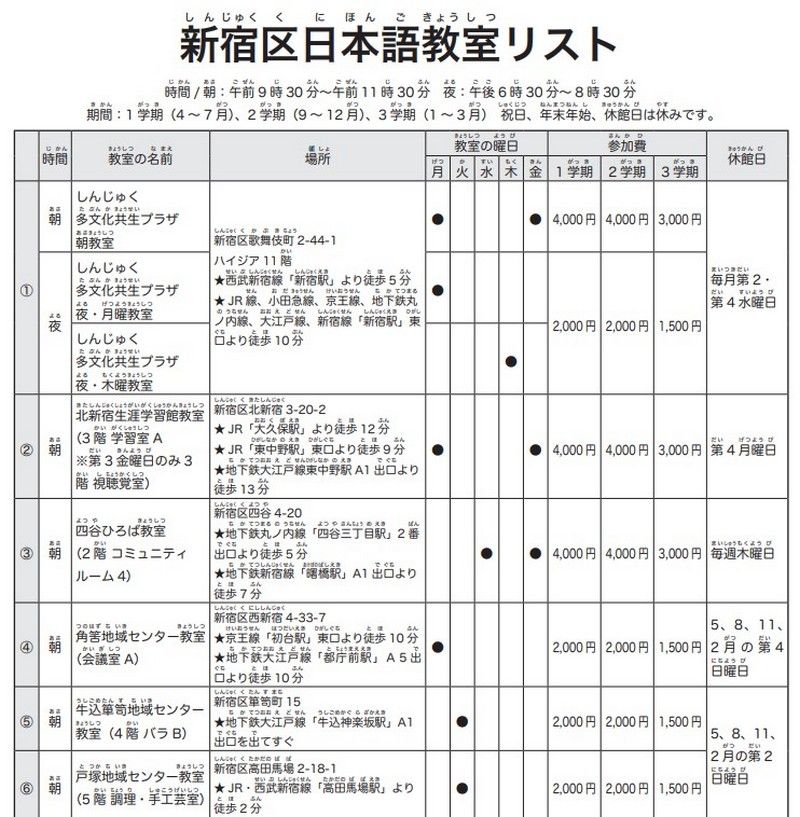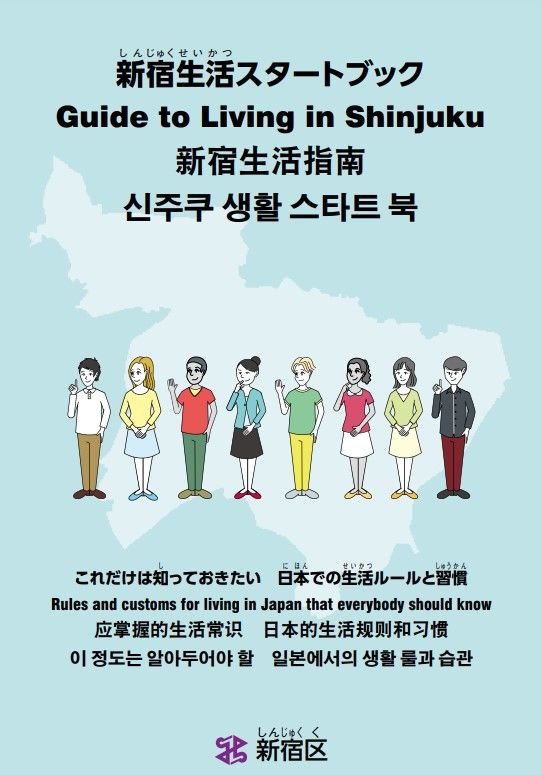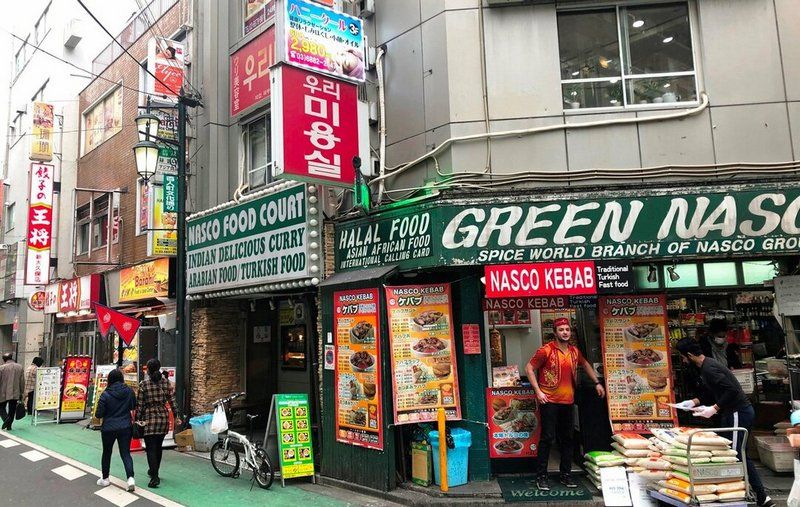
扎根日本的閒者,披露日本的不同面向,深入認識更真實的日本。 ( ^_^)/~~~ My blog https://motonojp.com/
Is it necessary to integrate into the local society for long-term overseas migration?
In fact, this topic has never been seriously considered in my overseas immigration life. It was not until I saw a video about interviewing overseas immigration on YouTube a while ago that I remembered that it seems that I have been in Japan for a long time. Should I think about it? Think about this. The content described in this article is mainly aimed at the middle class of the general public. I have not experienced the life of the upper and lower classes, so I cannot explain it clearly. (If you want to know how the stowaways survive in Japan, you can refer to the "Shinjuku Incident" released in 2009. Combined with your own life experience and stories heard from friends, the plot content of this film is "very real".)

To be honest, I personally don’t have high pursuit of living environment. I have been moving constantly since I was a child. The number of times I changed the environment in my memory was as many as 10 or 20 times, but I can’t remember the exact number at all. It is a luxury to pursue the comfort and warmth of living. First, it is not my own house. Second, I am not sure how long I can live there, and I cannot predict when I will move next time.
It should be because of frequent moving, I have the habit of keeping empty cardboard boxes. It is the empty carton in which various items are bought, the contents are taken out and used, and the cartons that pack the items will be discarded. With more experience, you will know that not every kind of empty carton is suitable. The best is the design that can be sealed without tape. The material structure must be strong enough to be reused many times before it is worth keeping.
Because of this, in the era before the rise of social software, it was difficult to maintain contact with relatives and friends, and my own needs for interpersonal communication gradually weakened. I don't know if the environment creates my personality, or my personality just adapts to such an environment.
The foreword has so much foreshadowing, in fact, I just want to say that even if I cross the sea and come to a foreign country, moving to Japan is just another change of environment for me . It is essentially the same as drifting from the homeland of birth to Taipei. Of course, this is not entirely correct, and there are still differences in the details.
When you come to different countries, the environment changes relatively more than the same country, such as languages, living habits of local people, and rules of the social environment. Fortunately, the Japanese destination I came to was Tokyo, which is more inclusive, rather than a relatively closed rural area where foreigners are hardly seen. Also because of their own experiences, they are more adaptable to living in a new environment. In addition, the language barrier that is difficult for ordinary immigrants to overcome is also overcome because I studied in Japan earlier.
Back to the topic, is it necessary to integrate into the local society for long-term overseas migration? If you think about it, this question is quite vague. How to define integration into the local society? Being able to mingle with local residents? The way of life is no different from that of the locals? For myself , I do n't really care, just let it be . I also don't know if I will stay in Japan all my life, maybe one day I will go back to Taiwan, or maybe I will go to another country.
Although my own experience may be difficult to become a reference object, but some experience can provide some help for friends who do not know how to integrate into Japanese society.
The metropolitan areas where Japan's population is concentrated, such as Tokyo, Osaka, Nagoya, Fukuoka, Sapporo, etc., are also enviable environments for Japanese from the countryside. Just like Taiwanese drifting north to Taipei; mainlanders going to Beijing, Shanghai, Guangzhou and Shenzhen to study and work. Rural children also need to adapt to new rules, new living habits, and accents when they arrive in a new environment (Japan also has dialect accents from various places, and they are also afraid of being laughed at). Whether you want to integrate into the local society depends on your own decisions, personality, social skills, etc. Japan’s metropolises are also made up of Japanese people from all over the world. People’s stereotypes may feel that Japanese people are indifferent, closed, and discriminate against other Asians (I think the word discrimination can be said in another way. Human nature has its own sense of regional superiority . Everyone can Try to imagine from your own standpoint, how Taiwanese see Filipinos and Indonesians; how mainlanders see Vietnamese; how Hong Kongers see Asians other than Japan...) According to my own long-term observations, the truth is often Japan People don't know how to communicate with foreigners! Being shy and afraid of making mistakes, not being good at taking the initiative to socialize with others, being sensitive, and being good at reading air are the common characteristics of most Japanese.
So if you want to integrate into Japan, being proactive is the best strategy! To do this, start with the Japanese you often come into contact with in your own daily life, and take the initiative to greet them . Most people should live in condominiums (apartments) when they first arrive in Japan. For the first few days after moving in, it is best to bring snacks (such as snacks bought in local stores) with your neighbors and your room. The downstairs neighbors below say hello and tell them you just moved in, please take care. Friends who have difficulty communicating in Japanese can check the Internet in advance to find the appropriate greetings and write them down and show them to the other party directly. Although this practice, some Japanese also feel outdated, but they will feel like putting their hot face on other people's cold ass. However, I feel that there are still people in modern Japanese society who are willing to implement this practice, and it will make the other person more impressed by being different. Even if the other party looks cold on the surface, he will definitely not have a bad impression of you in his heart. (Assuming that the unfortunate really encounters bad people, hurry up and move)
For those who still have difficulty using Japanese, in addition to studying in schools, local governments in areas with many foreign residents, such as Shinjuku, Edogawa, Toshima, and Adachi, have also set up special activities to support foreigners learning Japanese. There are many Japanese volunteers who are arranged to teach foreigners who are not yet familiar with Japanese at a very low cost or voluntary.

The Japanese who come to study in Japan most often come into contact with teachers and classmates. If you take a job in Japan, you are your colleagues in the company. Take the initiative to say hello to them, meet them every day, and try to talk a little bit more after the face is familiar, the weather is good, which restaurant is delicious, and so on. If you can talk naturally, the friendship will go further. In addition, it is the store (clerk) who needs to be in contact with shopping, eating, entertainment, etc. in life. If you go there often, you can of course say hello to them. The average Japanese customer doesn't usually greet the store staff, so if you can do it, the other person will be more impressed with you.
For a period of time, I often ate at several restaurants, and I would go there at least once a week. From my own experience of greeting often, the response of the owner (clerk) varies quite a bit depending on the personality of the owner. A cheerful and chatty owner would come to chat with me when he was not busy, and would sometimes take the initiative to correct my Japanese (which Japanese people hardly do!). The shy owner has never chatted with him, but he must remember me as a guest. Sometimes the set meal I liked was sold out, and he would silently help me add ingredients when I ordered other dishes.
Find a party you are interested in (referring to other than schools and companies), for example, playing baseball, football, cooking, flower arranging, model making... More unpopular sword appreciation meetings, hunting clubs... More parties should be attended If you can meet friends who can talk to each other, you will have the opportunity to go out to eat and drink together. After the friendship is good enough, you will also meet to go out to play. At this point, it is the same as making friends in your own country. Nationality is not a problem, it is purely your personal communication with the other party.

Another point to pay attention to is the local rules in Japan. For example, the common apartment living rules, the garbage must be sorted by yourself and then thrown to the designated place according to the specified date; the apartment that does not allow pets should not be kept; after everyone returns home at night Don't make noise. If the sound insulation of the apartment is not good (usually it is a building of wood or light steel structure), the sound of life and rest should be kept as low as possible.
It seems that life is very depressing and restrictive. On the other hand, if you don't like how others treat you yourself, then don't treat others this way. One of the basic common sense of the Japanese is not to cause trouble to others ! If you accidentally offend, after observing for a long time, you will know what you didn’t do well in the first place, and you can just stop doing it next time.
If you have small children or want to keep furry children (pets) at home, it is difficult to avoid uncontrollable noises, you can consider moving to a house (single-family house), just like Crayon Shin-chan or Doraemon their home .
Japan is definitely not the most perfect country. It should be said that there has never been a perfect country on the earth where we live. Every country has its own advantages and disadvantages. If you like its advantages and tolerate its shortcomings, you will be able to Psychologically accept the adaptation instead of complaining. Conversely, if you really can't adapt to such an environment, and the world is so big, you can find another location. Instead of complaining all day about the poor environment you live in, think about what you can do to fix the problem.
For ordinary people like me, if you don't pursue great wealth and wealth, Japan is actually a very suitable environment for living and living. Food, clothing, housing, and transportation, wealth and frugality are up to people, and there are various grades for you to choose. Comparing is not very popular, as long as you don't do anything too outrageous, the Japanese won't give you a second look. If they are also East Asians, there is not much difference in their appearance and appearance, and it is difficult to identify them at a glance. It is up to you whether you want to integrate into Japanese society or not. If you want to integrate into China like the ancient Chinese neighboring ethnic groups, you can also like to be like the United States, people from all ethnic groups can gather in your own gathering place. Japan also has similar gathering places of various ethnic groups, such as Chinatown in various places, Koreatown in Shin-Okubo (now gradually transformed into Asian Street), India Street in Nishi Kasai, and Burmese Street in Takadanobaba. (The meaning of "street" in Japanese is not the same as that in Chinese, and the main meaning is "area, area")

2022/08/11 posted.
Original link to Japan behind-the-scenes observation
Like my work?
Don't forget to support or like, so I know you are with me..
Comment…